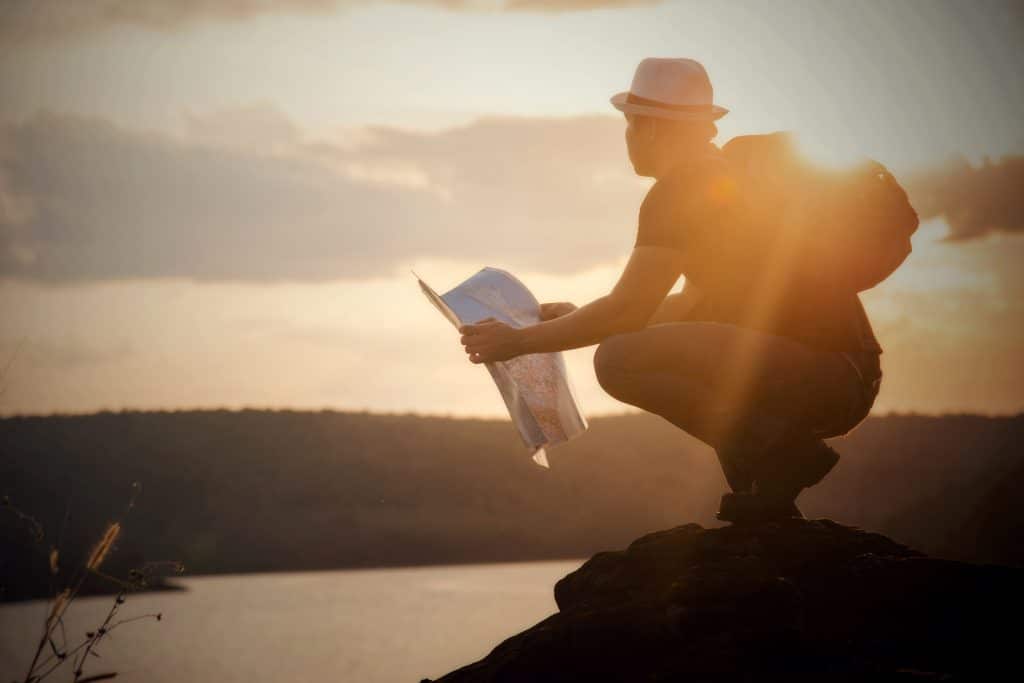Travel Experiences That Inspire Mindfulness
Henry King August 20, 2025
In recent years, travelers have begun to look for more than sightseeing, shopping, or adventure. They want meaning, peace, and deeper connections with themselves and the world around them. As stress levels rise in modern life, travel experiences that inspire mindfulness have become one of the fastest-growing trends in 2025. Instead of rushing through crowded tourist attractions, people are choosing journeys that slow them down and bring awareness to the present moment. From forest retreats to cultural immersions, this movement is reshaping how people view vacations.

Why Mindfulness and Travel Belong Together
Mindfulness—the practice of being fully present—fits naturally into travel. Being in a new environment often awakens the senses, creating opportunities to notice details that go unnoticed in daily life. Research published in Frontiers in Psychology highlights that mindful experiences during travel reduce anxiety and improve overall well-being. This explains why wellness tourism is expected to exceed 1 trillion globally by 2027, according to the Global Wellness Institute. People are no longer content with returning home from trips exhausted; they want to come back refreshed, with lasting habits that support mental clarity and balance.
Emerging Trends in Mindful Travel for 2025
1. Nature Immersion and Eco-Mindfulness
Spending time in nature has always been calming, but now it is central to travel planning. Destinations offering forest bathing, mountain treks, and coastal walks are growing in popularity. Forest bathing, a Japanese practice called Shinrin-yoku, has become a global phenomenon, encouraging travelers to slow down and connect with natural surroundings. Studies from the National Center for Biotechnology Information (NCBI) show that time in nature reduces cortisol levels, a key stress hormone. Eco-conscious lodges and retreats are also designing programs where guests engage in sustainable activities—such as planting trees or practicing meditation outdoors—to combine mindfulness with environmental responsibility.
2. Digital Detox Retreats
One of the biggest challenges of modern travel is escaping constant connectivity. Digital detox retreats are gaining traction as safe spaces where guests surrender their devices and re-learn how to live in the present. Popular in Southeast Asia and Europe, these retreats offer guided meditation, yoga, journaling workshops, and simple community living. Guests report sleeping better and experiencing sharper focus when free from the pull of constant notifications. With studies linking excessive screen time to increased anxiety, these experiences help travelers reset their minds and reclaim balance.
3. Mindful Culinary Journeys
Food is an essential part of travel, and mindful eating is becoming a trend in its own right. Culinary retreats now encourage travelers to savor each bite, focus on local traditions, and understand the origins of their meals. Programs often include farm-to-table cooking lessons, tea ceremonies, and plant-based nutrition workshops. According to the International Food Information Council, mindful eating practices improve digestion and overall satisfaction, making these culinary journeys both enjoyable and health-enhancing. Travelers are drawn to destinations like Italy, Japan, and Thailand, where food culture blends naturally with mindfulness rituals.
4. Cultural Mindfulness Experiences
Immersing oneself in local traditions is another way travelers cultivate mindfulness. Cultural experiences such as traditional tea ceremonies in Japan, indigenous storytelling in Australia, or mindful art workshops in Europe provide authentic opportunities to practice presence. These experiences require slowing down, listening carefully, and appreciating traditions that have lasted for centuries. The trend emphasizes respect and awareness rather than consumption, reshaping how cultural tourism is approached.
5. Movement-Based Mindfulness Travel
Yoga and meditation retreats have long been linked to mindfulness, but newer programs incorporate varied forms of mindful movement. Tai chi by the beach, qigong in mountain temples, and mindful hiking programs are on the rise. These activities blend physical wellness with mental awareness, making them accessible for people who find still meditation challenging. Resorts and wellness centers now design itineraries where physical activity becomes a natural meditation, reinforcing the connection between body and mind.
Practical Guide: How to Integrate Mindfulness Into Travel
- Choose the right destination: Opt for places known for natural beauty, cultural authenticity, or wellness programs. Avoid locations that prioritize consumerism over experiences.
- Pack with purpose: Bring a journal, comfortable walking shoes, and perhaps a lightweight yoga mat instead of excess gadgets.
- Create intentional rituals: Start each travel day with five minutes of mindful breathing or gratitude reflection.
- Slow your schedule: Avoid overpacking itineraries. Allow time for spontaneous walks, people-watching, or quiet observation.
- Practice mindful eating: Eat slowly, focus on taste and texture, and appreciate the cultural history behind each meal.
- Engage all senses: Whether listening to local music, touching handmade crafts, or smelling herbs in a market, mindful travel means noticing details.
- Reflect daily: Spend a few minutes journaling about what you observed, felt, and learned. Reflection strengthens the mindfulness habit.
Benefits of Mindful Travel
The benefits of travel experiences that inspire mindfulness extend beyond vacation. Physically, mindful travel improves sleep and lowers stress hormones. Mentally, it enhances focus, emotional regulation, and creativity. Spiritually, it encourages gratitude and a deeper appreciation for life. Families who travel mindfully often return with stronger bonds, as shared experiences encourage communication and presence. Solo travelers find mindfulness trips especially transformative, often returning home with renewed clarity about personal goals and values.
Future Outlook: The Growth of Mindfulness Tourism
The future of travel experiences that inspire mindfulness is promising. As mental health becomes a global priority, destinations will continue to design retreats, tours, and cultural activities that help travelers slow down. Hotels are already integrating meditation pods, wellness menus, and guided reflection sessions into their services. Airlines and airports may follow, creating spaces for travelers to practice mindfulness before flights. Technology will also play a role—apps offering meditation guidance during trips are expected to grow—but balanced with retreats that limit or ban device use.
Conclusion: Travel as a Pathway to Mindful Living
In 2025, the idea of travel is shifting from escape to enrichment. Travel experiences that inspire mindfulness are not a luxury trend but a necessity for those seeking balance in a fast-moving world. By choosing destinations and programs that prioritize presence, reflection, and authentic connection, travelers gain more than souvenirs—they return with habits that improve daily life. Whether it’s walking through a quiet forest, participating in a cultural ritual, or savoring a mindful meal, these journeys remind us that the richest experiences happen when we slow down and truly live in the moment.
References
- Explore how travel experiences that inspire mindfulness are reshaping tourism in 2025 with nature, https://skift.com
- The Global Wellness Economy Reaches, https://globalwellnessinstitute.org
- Digital Detox – The New Luxury, https://www.thehyggewellnesscompany.com







